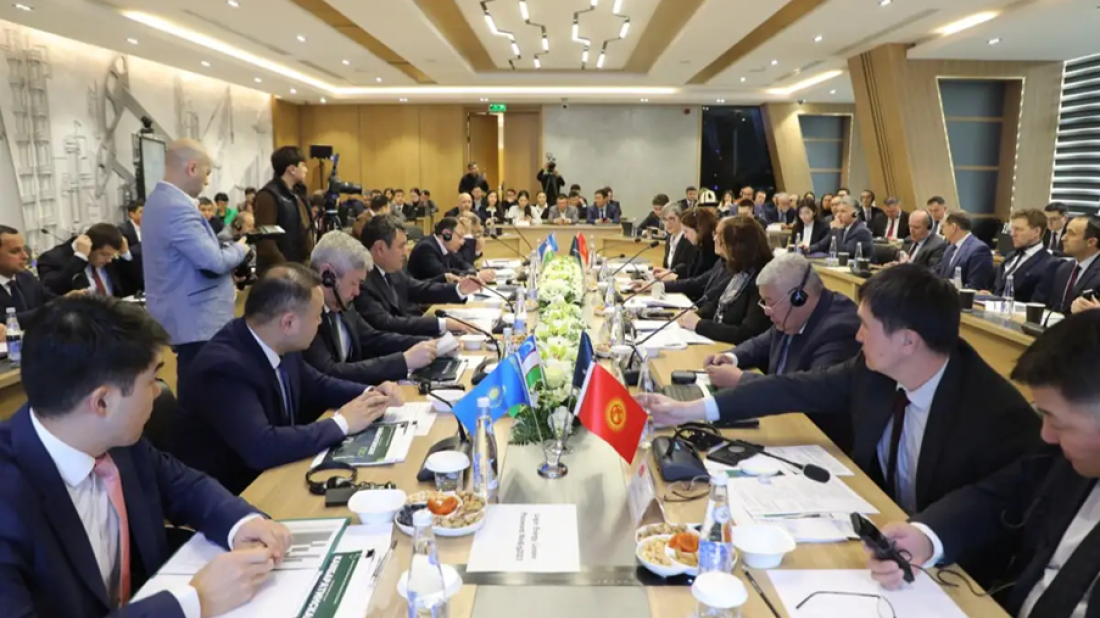International calls for restraint after U.S.-Israel strikes on Iran
The international reaction to the U.S. and Israel’s strikes on Iran came in fast and strong....

A high-level meeting of the water and energy ministers from Kazakhstan, Kyrgyzstan, and Uzbekistan recently took place in Tashkent to discuss the construction of the Kambarata Hydroelectric Power Plant (HPP-1). The project, located on the Naryn River, is set to become one of Central Asia's largest hydroelectric facilities.
Kazakhstan's Vice Minister of Energy, Sungat Yessimkhanov, emphasized that the 1,860 MW power plant will significantly enhance regional cooperation and strengthen friendly relations between the countries of Central Asia.
The project will see the three countries—Kyrgyzstan, Kazakhstan, and Uzbekistan—collaborate closely on the operation of the plant. According to agreements made during the meeting, Kyrgyzstan will hold a 34% share, while Kazakhstan and Uzbekistan will each have a 33% stake. Upon completion of the project, Kyrgyzstan will assume full ownership of the Kambarata HPP-1.
The Kambarata HPP-1 is a monumental project, with plans to construct a 256-meter high dam, a power station capable of generating 1,860 megawatts, and a reservoir with a capacity of 5.4 billion cubic meters. Once operational, the plant will produce approximately 5.6 billion kWh of electricity annually. The project is expected to be completed within 10 years.
The leaders of Kazakhstan, Kyrgyzstan, and Uzbekistan had previously signed a roadmap for the Kambarata HPP-1 project in January 2023, solidifying their commitment to the project and outlining key milestones.
Experts have raised concerns about the deteriorating water resources in the region, driven by drastic climate changes such as rising temperatures and decreasing precipitation. These changes are leading to lower water levels in rivers and reservoirs.
Analysts predict that by 2050, Central Asia’s population will reach 90 million, exacerbating water scarcity. The region is expected to face a 25-30% water shortage, while the demand for water for agricultural purposes may increase by 30% by 2030.
The Kambarata HPP-1 is seen as a key step in addressing some of these challenges, providing a significant boost to the region's energy security and mitigating some of the effects of water scarcity through renewable hydroelectric power.
Follow the latest developments and global reaction after the United States and Israel launched "major combat operations" in Iran, prompting retaliation from Tehran.
Tensions between the U.S. and Iran are escalating, with Washington ordering a significant military build-up in the region and multiple countries evacuating diplomatic staff amid fears of further instability.
Ankara has rejected media reports claiming it plans to deploy military forces into Iranian territory in the event of a U.S. attack on the Islamic republic.
Russian President Vladimir Putin’s special envoy, Kirill Dmitriev, arrived in Geneva and may hold talks with U.S. officials, according to the RIA news agency.
Two people were killed and around 40 injured when a tram derailed in central Milan on Friday (27 February), a spokesperson for the local fire service said.
The international reaction to the U.S. and Israel’s strikes on Iran came in fast and strong.
Follow the latest developments and global reaction after the United States and Israel launched "major combat operations" in Iran, prompting retaliation from Tehran.
Governments across the region responded swiftly to Israel’s strikes on Iran, closing airspace, issuing travel advisories and activating contingency plans amid fears of escalation.
As the strikes on Tehran began on Saturday (28 February), Touraj Shiralilou sent us this report from the Iranian capital.
Abdullah Öcalan, the jailed leader of the outlawed Kurdistan Workers’ Party (PKK), issued a statement on Friday (27 February) calling on Ankara to adopt legislation aimed at promoting political inclusion.
You can download the AnewZ application from Play Store and the App Store.

What is your opinion on this topic?
Leave the first comment